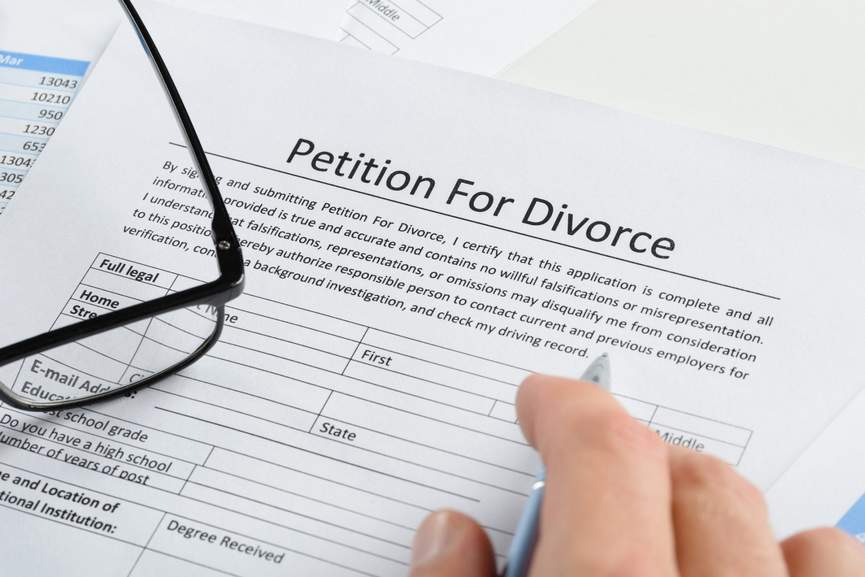Divorce is when you legally end your marriage through a court order. A divorce does not include parenting and property orders, this is an entirely different process that needs to be undertaken alongside with your divorce. In Australia there is a ‘no fault’ principle in divorce. Whereby, when granting a divorce, the Court will not consider the reason/s the marriage ended but whether the marriage has broken down.
1.What are the grounds for divorce in Australia?
The Family Law Act 1975 (Cth) established a principle of “no-fault divorce” in Australia. Whereby the only ground for divorce is an irretrievable breakdown of the marriage evidenced by a period of no less then 12 months’ separation. The court will not make an order for divorce if the court is satisfied that there is a reasonable likelihood that marriage will be resumed.
2.What does ‘separated’ mean?
It is from the day either your or your spouse decide that the marriage is over and this is communicated to the other person, that you are considered separated.
In the event you and your spouse have separated but are still living in the same house, you are still able to apply for a divorce. In this circumstance, you will be required to prove that your marriage has ended, and you and your spouse have lived separate lives since the separation. To do this you will be required to provide the court with two affidavits, one from yourself and another from either a friend or family member who would be able to support this. If you have a child over the age of 18, they are eligible to make an affidavit.
3.How do I apply for divorce in Australia?
To apply for a divorce in Australia, you must register on the Commonwealth Courts Portal whereby you will be required to make an online application. You can apply for a divorce by yourself (sole application) or together with the other party to the marriage (joint application). In your application you will be required to provide the following:
- An Application for Divorce form which has been sworn before an authorised witness;
- A photocopy of your marriage certificate;
- Proof of jurisdiction – e.g. Australian citizenship certificate, Australian passport or visa; and
- A Counselling certificate if the marriage is less than 2 years.
4.What if I have been married for less than 2 years?
If you have been married for less than two years, you will be required to attend counselling prior to filing an Application for Divorce to discuss the possibility of reconciliation. If you still intend on applying for divorce after attending counselling, you will be required to provide a copy of your counselling certificate, as part of your application,
In the event your spouse doesn’t attend counselling, you may still apply for divorce by requesting special leave from the court.
5.When can I make an application for Divorce?
An application for divorce may only be made to the Federal Circuit Court & Family Court of Australia if the parties have been separated for at least twelve months. If the parties reconcile for 3 months or more, then the 12-month qualification period will reset, and you will be unable to apply for a divorce for another 12 months.
6.How long does it take to get a divorce?
A divorce in Australia will generally take at least 4 months from the time you have filed your application with the court to being issued with a Divorce Order. However, if procedural issues arise, the process can take longer. Once you have received a Divorce Order from the court, you will be able to remarry if you wish.
To ensure the divorce is finalised as soon as possible, it is important to check that all the relevant forms as part of your application are completed correctly to avoid any delays in your application.
7.What are the costs associated with getting a divorce?
When applying for a divorce you will need to pay:
- A court filing fee ($990), however may be eligible for a reduced fee of $330 if you hold certain government concession cards or can demonstrate financial hardship;
- Service fees if you have made a sole application;
- A certified copy of your marriage certificate if you do not have the original;
- Lawyer’s fees (if applicable).
8.What if my spouse does not want a divorce?
If the requirements of divorce have been met and the Court are satisfied accordingly, they will grant a divorce no matter if your spouse does not agree with the decision. However, in the event they are not satisfied, the Court can adjourn your case, meaning the hearing will be postponed to a later date so you can provide better evidence or dismiss your application.
9.What if I was married overseas, can I still apply for a divorce in Australia?
If you were married overseas, you are still able to apply for a divorce in Australia if you or your spouse is an Australian citizen, a permanent resident or have been living in Australia for at least 12 months before applying for a divorce.
In your application, you will need to provide evidence of your overseas marriage by way of a certificate or official document from the registry of marriages in the country where you got married. If you are unable to produce an official document proving your marriage, you can file an affidavit describing your marriage and the reason why you have been unable to produce such a document.
10.What if I have children with my spouse?
If you have children under the age of 18 with your spouse, the Court needs to be satisfied there the appropriate arrangements have been put in place for your children prior to a divorce order being issued. If you and your spouse are unable to agree upon the arrangements for the child, you may need to apply for a parenting order.



